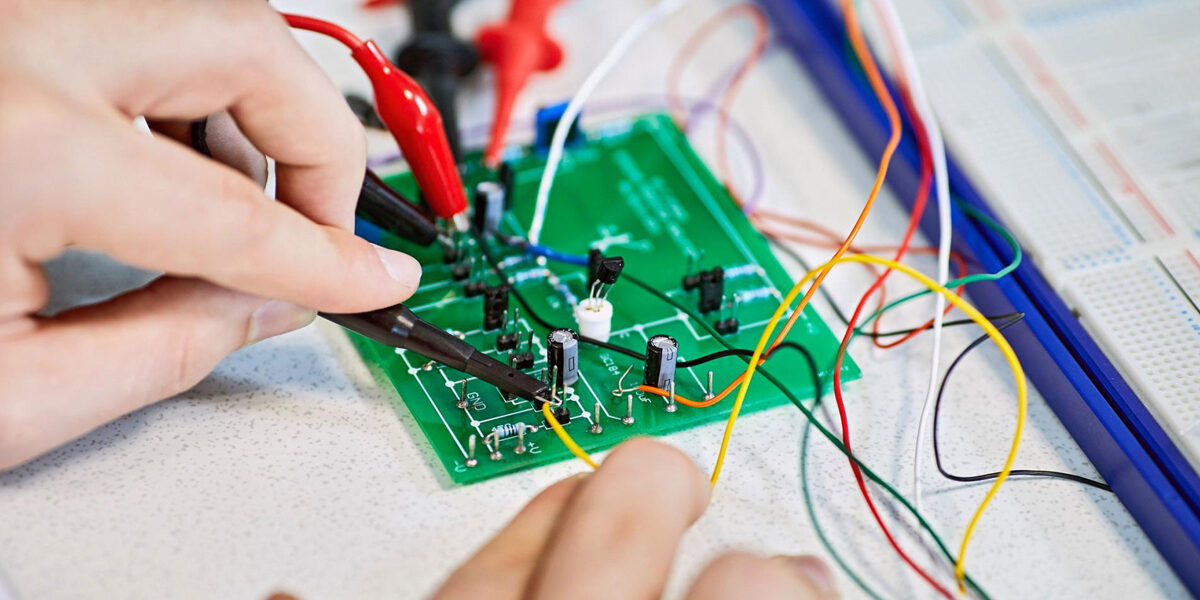Requirements
- SSC and HSC An equivalent minimum average of 80% over the following senior level courses, with no less than 70% in each course:
⋆ English
⋆ Pre-Calculus Mathematics
⋆ Chemistry
⋆ Physics - IGCSE and A Level - An equivalent minimum average of B (80%) over the following courses (at least two courses at the A level), with no less than D (60%) in each course:
⋆ English
⋆ Mathematics
⋆ One of Biology, Chemistry, Computer Science, or Physics
⋆ A fourth academic course - Academic IELTS - 6.5 overall and 6.0 in each band
Features
- 4 to 5 Years Engineering Degree
- Co-op available
- Member of U15 Universities
- Credit Transfer possible


Program Name: Electrical Engineering (BSc)
Intake: September Only
Electrical engineers develop innovative products and solutions using electrical and electronic devices. These solutions are the basis of technologies from clean energy through communication systems to biomedical devices. This program is accredited through the Canadian Engineering Accreditation Board and provides a platform for an exciting career in a field that connects today’s graduates with tomorrow’s technology.
As an electrical engineering student, you will learn to develop innovative products and solutions using electrical and electronic devices and systems of your design. Electrical engineers’ innovation and imagination underpin the development of clean transportation and the communication systems that we use every day – technology that connects the world. Electrical engineers are the professionals who design and deploy these systems and solutions. As part of the electrical engineering program, you have the choice to specialize in application areas such as biomedical, communication devices, or power and energy systems. You will demonstrate your breadth of skills and ingenuity through a group capstone project in your final year.
Skills gained by studying electrical engineering
- Gain an understanding of both the scientific and engineering methods and be able to use these methods to rationally and effectively analyze complex problems affecting both individuals and society.
- Generate conceptual and detailed designs for complex engineering problems, demonstrating the proper use of equipment and instrumentation in the solution.
- The ability to lead the development of new technologies and systems.
- Communicate effectively, both verbally and in writing, with colleagues, clients, and the general population.
Focus areas
Students wishing to pursue more focused studies in an electrical engineering subject/research area have the choice of doing so through approved focus areas in:
- Biomedical
- Communication devices
- Power and energy systems
- Engineering physics
Electrical engineering students can add courses to their degree to complete minors in a range of disciplines including arts, computer science, geological sciences, management, mathematics, music, recreational studies.
Co-op/IIP
Many Electrical Engineering students choose to undertake work terms through the Co-operative Education and IIP program. This experiential learning opportunity also qualifies as a pre-graduation experience that counts towards their professional designation and, if completed in full, is reflected on the graduation parchment.
Program details
The Bachelor of Science in Electrical Engineering is one of five undergraduate engineering majors that can be undertaken after a common year of foundation studies. Expected duration: 4 to 5 years The program in electrical engineering has a core-plus-elective structure. The core develops the necessary base in mathematics, the physical sciences, dynamics, thermodynamics, electric fields and circuits, and fundamental professional courses focused on energy conversion and transmission, electronics, materials and devices, communications and control systems. At the conclusion of the program, you will have acquired both the knowledge and experience necessary to design and engineer practical electrical and electronic systems to solve real-world problems. To support that outcome, the final year includes a significant, industrially relevant, capstone group design project, in addition to control systems and communication systems as core requirements, with the remaining program based on electives. A certain level of specialization is possible through the selection of elective courses offered in the final year. In addition, the department offers recognized focus areas in power and energy systems, communication devices, engineering physics and biomedical.
Learning beyond the classroom
Every student in Engineering has opportunities to apply the theoretical foundations of classroom learning to real-world design problems throughout the program. In the Co-operative Education and Industrial Internship Program (Co-op/IIP), you can complement your study with paid work experience. Competition, representational, and special-interest societies allow you to connect with fellow students with shared interests. And student exchange programs let you complete part of your degree at one of several partner universities around the world.
| Term | Type of entry | Applications open | Application deadline |
|---|---|---|---|
| Fall (September) | Direct entry | Early October | March 1 |
| Advanced entry | Early November | March 1 |






